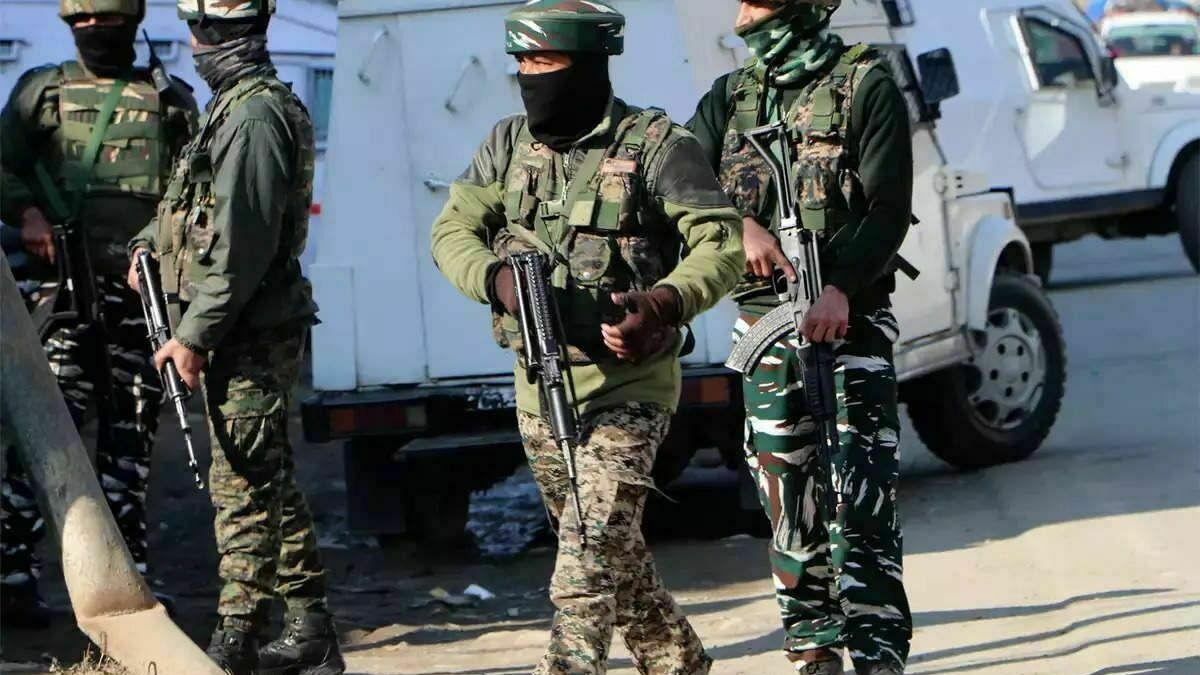
India's decision to hold a G20 meeting in disputed Kashmir angered Pakistan
In a statement, Al Jazeera writes, the Pakistani Foreign Ministry called India's actions "reckless" and demanded that the G20 meeting scheduled for May 22-24 be canceled. According to Islamabad, the Indian side, pursuing selfish goals, is again trying to perpetuate the "illegal occupation of the territory of the state of Jammah and Kashmir." This shows its clear disregard for UN Security Council resolutions and international law. "Pakistan strongly condemns these steps", - is stated in the document.
India assumed the chairmanship of the G20, which includes the most developed countries of the world, in December 2022. A summit of G20 leaders is planned to be held in New Delhi in September this year.
Since the middle of the XIX century, the term "Kashmir" referred only to the Kashmir Valley between the Great Himalayas and the Pir Panjal range. Today, this term covers a large territory, including the Indian-administered Jammu, Kashmir and Ladakh, as well as the Pakistani-administered territories of Azad Kashmir and Gilgit-Baltistan. The territories of Aksai-Chin and the Trans-Karakoram Tract are under the protection of China.
Mahatma Gandhi, TASS notes, once admired Kashmiris and cited them as an example. "Look at Kashmir, see how people of different faiths can get along!" he wrote. Then, in the mid-1940s, India was waiting for its independence, but against the background of approaching freedom, the motley Indian cauldron, in which, besides Hindus, Muslims, Sikhs, Parsis, Christians and Buddhists were also cooked, was about to explode. More than 600 principalities that were part of British India were waiting to see what would happen with the departure of the colonialists who ruled the country for 200 years.
According to the plan of the last English Viceroy of India, Lord Mountbatten, British India was to be divided into two independent dominions - India and Pakistan. At the same time, Pakistan became a country with a Muslim majority, and India - with a Hindu one.
The collapse of the country turned into pogroms, and millions of refugees. As a result of the monstrous massacre across India, at least 500 thousand people were killed.
Against this background, the Principality of Kashmir, where Muslims, who were the majority here, as well as Hindus and Buddhists, lived peacefully, seemed to be an island of tranquility. Which is what Gandhi pointed out. However, less than a few months after August 15, 1947, when India gained independence, Kashmir became a symbol of confrontation and hatred.
Kashmir today is a patchwork quilt sewn according to the patterns of confrontation of three states at once. And the Kashmir problem remains the main problem hindering the development of the entire South Asian region.
Islamabad claims that India is crushing Kashmir, but, to put it mildly, it is not true. After all, in part of the territory occupied by Pakistan, the unrecognized state of Azad Kashmir (Free Kashmir), controlled by Islamabad, emerged in 1947 with its capital in Muzaffarabad. It is the oldest unrecognized public entity on the planet. And the rest of it is located in the Pakistani Gilgit-Baltistan region.
Meanwhile, while Delhi and Islamabad were arguing, the PRC occupied two districts of mountainous Kashmir in 1957-1962, explaining its actions as "the need to restore historical justice."
In the Indian part of Kashmir, meanwhile, the state of Jammu and Kashmir was formed.
The Kashmir issue, Al Jazeera notes, has remained the main problem in India-Pakistan relations over the past decades. In total, two of the three Indo-Pakistani wars occurred because of this problem. Moreover, the Muslim state of Jammu and Kashmir has become the most unstable region of India. Groups fighting for complete independence from India and the creation of an Islamic state have appeared here. Bloody showdowns, attacks by criminal gangs and extremists have become commonplace in this area.
.